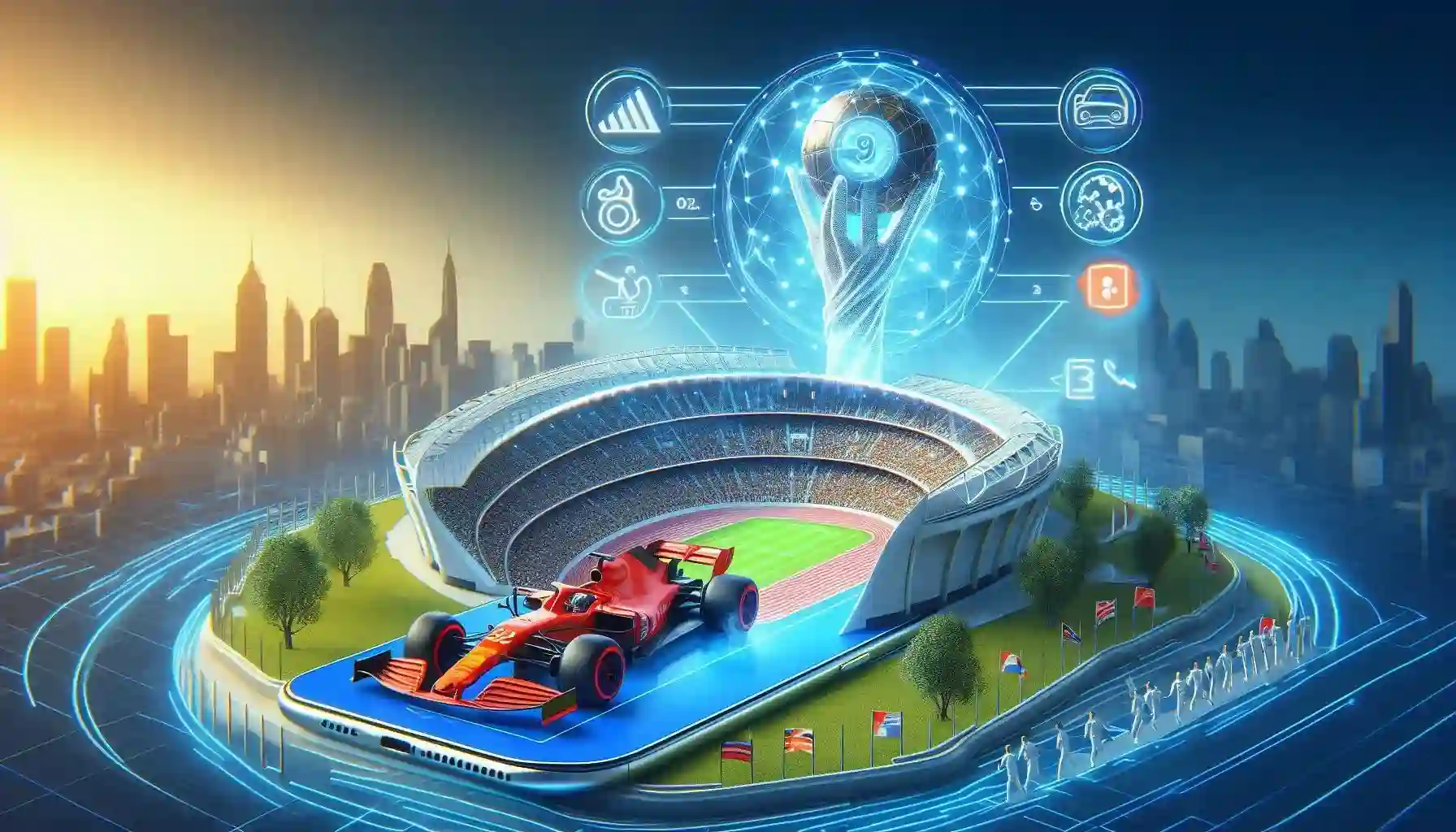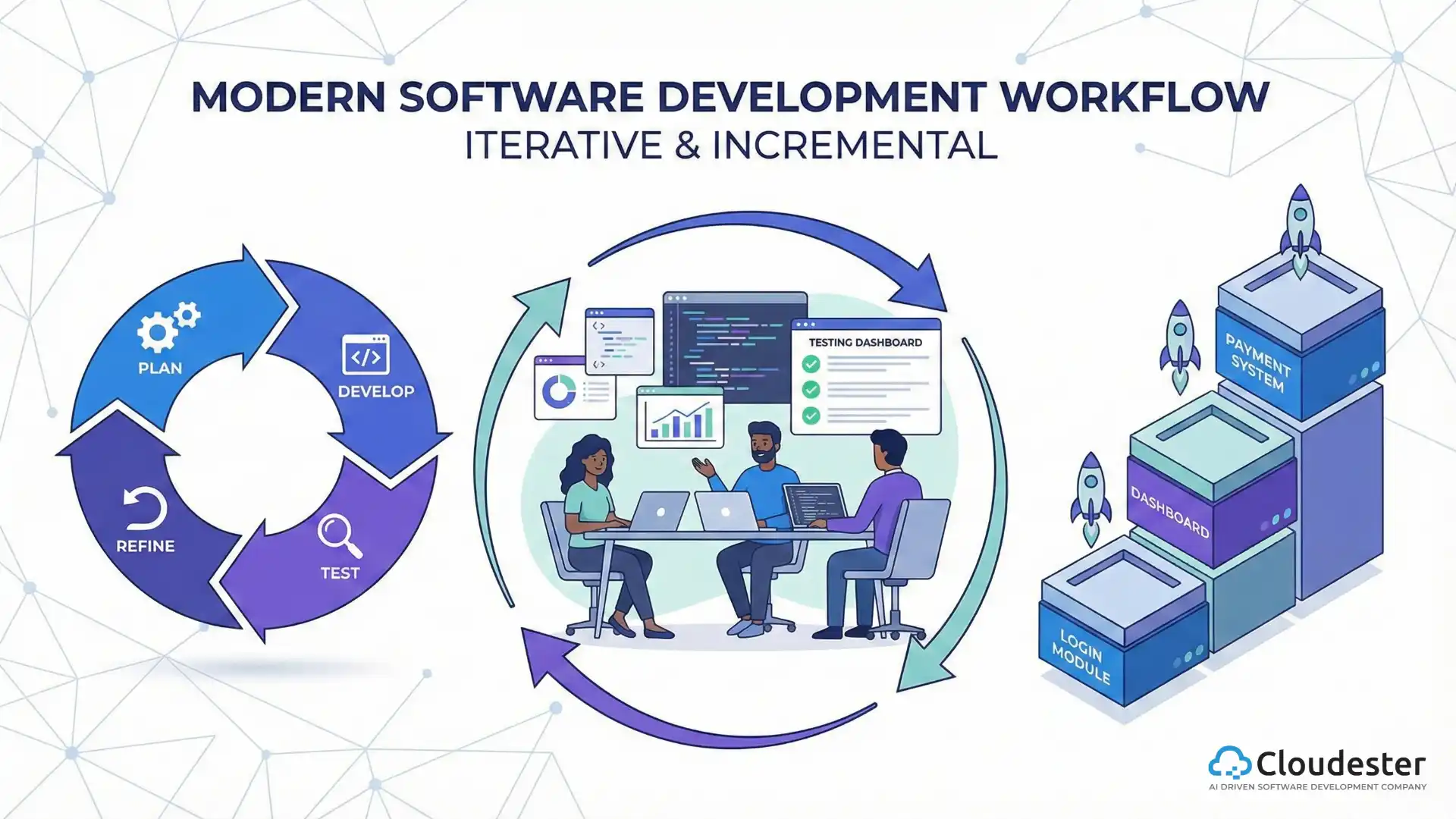Revolutionizing User Engagement: The Role of AI in App Personalization

AI in App Personalization is transforming how we interact with mobile applications every day. It helps apps deliver tailored content, suggestions, and experiences that resonate with each individual user. This shift towards Artificial Intelligence in Mobile Apps has redefined our expectations for convenience and relevance.
In this blog, we explore why Personalized User Experience is crucial and how AI-driven App Engagement elevates user satisfaction. We will also discuss how Machine Learning in App Development influences User Retention Strategies and fuels future innovation. Users now demand apps that cater to their tastes, whether it’s music, shopping, or news. This transformation fosters a sense of connection and satisfaction among diverse audiences. By leveraging AI, businesses can stand out in a crowded market and earn long-term loyalty.
Understanding the Importance of AI in App Personalization
AI in App Personalization enhances the way apps adapt to each user’s habits and preferences. It combines user data with intelligent algorithms to predict needs and suggest relevant content. When apps learn from user behavior, they become more intuitive and helpful. This process leads to stronger engagement and encourages long-term loyalty among users. For example, AI-powered Recommender Systems analyze past actions to present suitable options, reducing time spent searching.
Personalized User Experience is no longer a luxury; it’s a core expectation in modern app ecosystems. AI in App Personalization addresses these expectations by creating meaningful, user-centric interfaces that evolve over time.
How Machine Learning in App Development Drives Personalization
Machine Learning in App Development enables apps to study complex user data and recognize behavioral patterns. These algorithms learn from each interaction, allowing the app to refine its recommendations in real time. Predictive Analytics for User Engagement also leverage these insights, providing timely alerts or suggestions that resonate with user interests. By understanding frequent actions and browsing habits, apps can offer better deals, promotions, or customized features.
- Real-time data analysis fosters swift improvements.
- Personalized notifications increase open rates and drive conversions.
- Dynamic user profiles adapt to shifting preferences.
- Predictive models guide targeted marketing campaigns.
Machine Learning also refines error margins by testing multiple models before choosing the most accurate approach. This ensures every recommendation feels relevant, boosting overall app satisfaction. Ultimately, continuous learning keeps the app fresh and aligned with shifting user demands.
Behavioral Targeting in Apps for a Personalized User Experience
Behavioral Targeting in Apps tailors content based on actions, such as clicks, session durations, or purchase history. This method aligns well with AI-driven App Engagement, since it focuses on real-time user signals. Users appreciate relevant content that matches their interests without feeling intrusive. When apps respect personal boundaries, trust grows, and users become more likely to engage regularly.
Custom AI Software Development Solution For Enterprises
Benefits of Behavioral Targeting
Accurate targeting cuts down irrelevant suggestions and streamlines the user journey. It also boosts app revenue by aligning offers with user intent, which increases conversions.
- Higher satisfaction leads to more positive reviews.
- Loyal users are more likely to share feedback and spread word-of-mouth.
Through Behavioral Targeting in Apps, developers can design personalized onboarding flows that reduce confusion. Such refined journeys make new users feel welcome and motivated to explore further.
AI in App Personalization for Enhanced User Retention Strategies
User Retention Strategies depend on keeping people interested, and AI in App Personalization achieves this goal effectively. By analyzing user drop-off points, apps can identify challenges and deliver solutions before users lose interest. Moreover, well-timed push notifications, guided by AI, encourage continuous interaction with the app. This approach fosters a sense of relevance, as users feel the app responds to their unique preferences.
Practical Tips for Better User Retention
- Send reminders for incomplete actions.
- Offer rewards for consistent usage.
- Provide tutorials for new features.
- Adapt content to seasonal trends.
Data-driven insights highlight which features attract the most attention, helping teams prioritize improvements. When these insights are shared across teams, product roadmaps become more user-focused and strategic. Over time, retention strategies evolve, ensuring that the app remains engaging despite changing user trends.
Improving AI-driven App Engagement with Predictive Analytics
AI-driven App Engagement benefits from Predictive Analytics for User Engagement, which forecasts user behavior and possible churn. These insights guide app developers to refine features or launch campaigns that address user needs early. A personalized feed, for instance, might highlight trending content that aligns with each user’s browsing patterns. When apps stay proactive, they reduce friction and create a seamless experience that users appreciate.
Examples of Predictive Analytics in Action
- Identifying high-value users who need exclusive offers.
- Predicting peak hours for content updates.
- Suggesting new product categories for exploration.
- Highlighting relevant articles based on reading history.
Predictive models spot patterns that might escape manual observation, giving the app a competitive edge. For instance, apps can tailor seasonal campaigns that appeal to users during special occasions. By anticipating needs, developers position their apps as indispensable tools in daily life.
Challenges and Ethical Considerations in AI in App Personalization
AI in App Personalization raises questions about data usage, user consent, and transparency. Apps must ensure they handle personal information responsibly, respecting privacy regulations and user trust. When developers fail to secure data, users may become wary and disengage from the platform. Ethical AI also involves explaining how recommendations work, so users feel in control of their experience.
Ways to Address Ethical Concerns
- Provide clear opt-in or opt-out options.
- Use anonymized data whenever possible.
- Offer transparent explanations for AI-driven recommendations.
- Conduct regular security audits to protect user information.
User trust hinges on clear communication about how personal data is collected and utilized. Apps that prioritize user agency often see stronger engagement and better retention rates. Developers should remain vigilant about evolving regulations, ensuring compliance at every stage of the process.
The Future of Artificial Intelligence in Mobile Apps
Artificial Intelligence in Mobile Apps will keep evolving, making AI in App Personalization more accurate and user-friendly. Advances in deep learning may lead to even more intuitive features that adapt instantly to changing preferences. Augmented reality integrations, voice-activated commands, and context-aware suggestions may soon become mainstream in app design. As technology progresses, we can expect even smarter interactions that simplify tasks and elevate user satisfaction.
AI-driven voice assistants might soon recognize subtle changes in tone, adapting their responses accordingly. Such enhancements create deeper, more human-like connections between users and technology. As the boundaries between digital and physical experiences blur, personalization will shape the future of app design.
Also read: 7 ways AI is Transforming Mobile App Development in 2025
Conclusion
AI in App Personalization has redefined how we interact with mobile apps by delivering relevant content and experiences. From Machine Learning in App Development to Predictive Analytics for User Engagement, these tools boost retention and trust. By respecting ethical considerations, developers can harness the power of AI to create meaningful, user-centric applications.
As technology advances, we can look forward to even greater personalization and convenience in the mobile app landscape. By embracing ethical principles, AI can offer transformative benefits without compromising user privacy. Ultimately, thoughtful AI in App Personalization paves the way for more intuitive, gratifying digital experiences for everyone.









